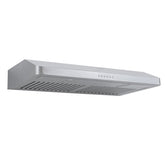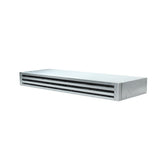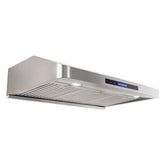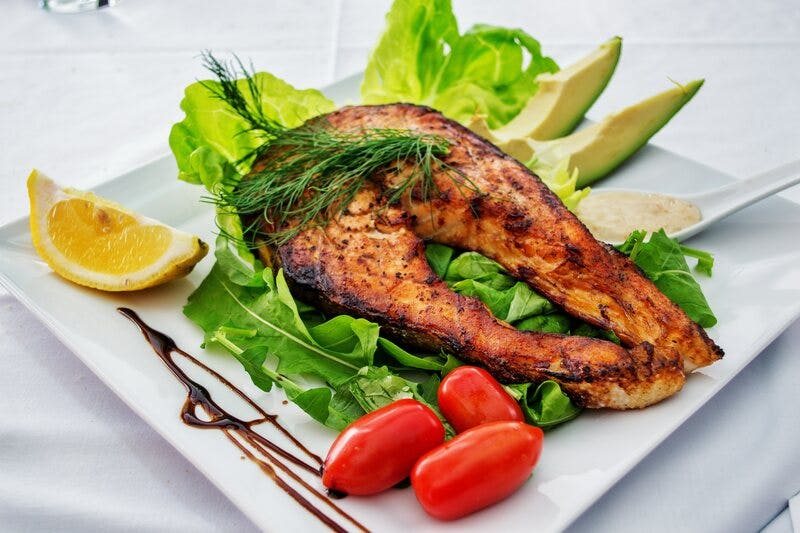If you’re a fish lover, you’ve probably struggled to keep lingering fish odors at bay. At times, it may seem like all it takes is cooking a small fish filet and the smell won’t go away.
The good news is there are a lot of ways to tackle strong fish odors. We’ll go over eight of the most popular in this post.
Before you start cooking: only cook fresh fish.
This tip is more preventative than anything. Before you start cooking, make sure that your fish is fresh. Take a look at the sell-by date. If you’re a day or two or longer past that date, the fish may be bad. It will have a stronger fishy smell than when you first bought it.
After you’re done cooking: clean up immediately.
If you leave a mess after you’re done cooking, smells can linger for days or longer. This is especially true when working with raw poultry, fish, and other meats. So instead of leaving all those dirty dishes and cutting boards out, toss them in your dishwasher before you sit down to eat. Wipe off the counters with a kitchen degreaser, then you can go sit with your guests.
Install a range hood.

One of the most effective ways to tackle strong lingering fish odors is to install a vent hood. A vent hood is designed to vent heavy grease and smoke from your kitchen. It also neutralizes any cooking odors. But you shouldn’t just buy any range hood. The type of hood you’ll want will depend on your kitchen setup and cooking habits.
When cooking with strong-smelling foods, one of the most important things to consider is the CFM. If you cook fish, Asian food, or other pungent foods often, we recommend at least a 900 CFM vent hood. Avid cooks should consider a 1200+ CFM range hood to ensure all the pesky smells vent to the outside.
Also, it’s important that your hood ducts to the outside. There are two main types of range hoods: ducted and ductless. Ductless hoods are not nearly as powerful as ducted hoods. They rely on charcoal filters to capture grease and neutralize odors.
If you cook fish often, your charcoal filters won’t keep up and will require replacement often. They won’t be nearly as efficient at capturing grease as stainless steel baffle filters.
Take a look at some of our best 900 and 1200 CFM range hoods at the links below.
While you’re waiting for your hood to arrive, open a few windows or doors while you’re cooking. Run the microwave fan too. Basically, do anything you can to improve the ventilation and keep the cooking smells at bay.
Replace your current range hood.
If you have a range hood but still have to deal with strong fish smells, chances are your hood is not powerful enough. When shopping for a replacement, increase the CFM by at least 300 to get the most out of your investment. Otherwise, you run the risk of buying a replacement that won’t work well for you.
You might also choose to replace your ductless hood with a ducted hood. This is a great idea to keep those pesky fish smells out of your cooking area.
But before you go shopping, know that some hoods can convert from ductless to ducted. In other words, you wouldn’t need to buy a new range hood. Instead, you’d remove the recirculating kit and charcoal filters, then install ductwork running from your hood to the exterior of your home.
Yes, I know; this still takes some work. But you will save some time and money converting your hood rather than buying and installing a new one.
Boil water, then simmer cinnamon sticks, citrus, and a little ginger.
This is the ultimate odor eliminator! Cinnamon, citrus, and ginger all work together to neutralize the strongest cooking smells. Boiling them in water makes the mixture much more effective too. It’s that easy!
Leave a bowl of white vinegar out near your cooking area.
One less involved solution is to simply fill a bowl with vinegar and set it in your kitchen. Vinegar contains acetic acid which is quite effective at neutralizing cooking odors. It won’t act as fast as boiling the cinnamon though.
Leave a bowl of baking soda out near your cooking area.
You can do the same thing with baking soda. Baking soda targets the acidic odors in your kitchen. Fish is an acidic food; not to mention, you may be cooking with acidic ingredients like wine or vinegar too.
You can also put your bowl of baking soda (or vinegar) in the microwave or oven. This will work great at neutralizing strong odors in specific areas of your kitchen.
Invest in some essential oil air fresheners to combat the strong smell.
Essential oils work well for light fish odors but not with strong smells. If you’re an avid cook, you may want to try the methods above. But this can work in a pinch. As an added bonus, essential oils come in many different fragrances, so you have a lot of options!
That wraps up our post on how to get rid of pesky fish smells in the kitchen. The most important thing to consider is improving your ventilation. Investing in a range hood is the best option if you cook fish consistently. If you don’t cook fish often, using one of the homemade methods with baking soda, vinegar, cinnamon, etc. will work great.
Thanks for stopping by our blog. Check out more DIY articles at the links below.
Related Articles
12 Easy Ways to Get Rid of Nasty Kitchen Sink Smells











